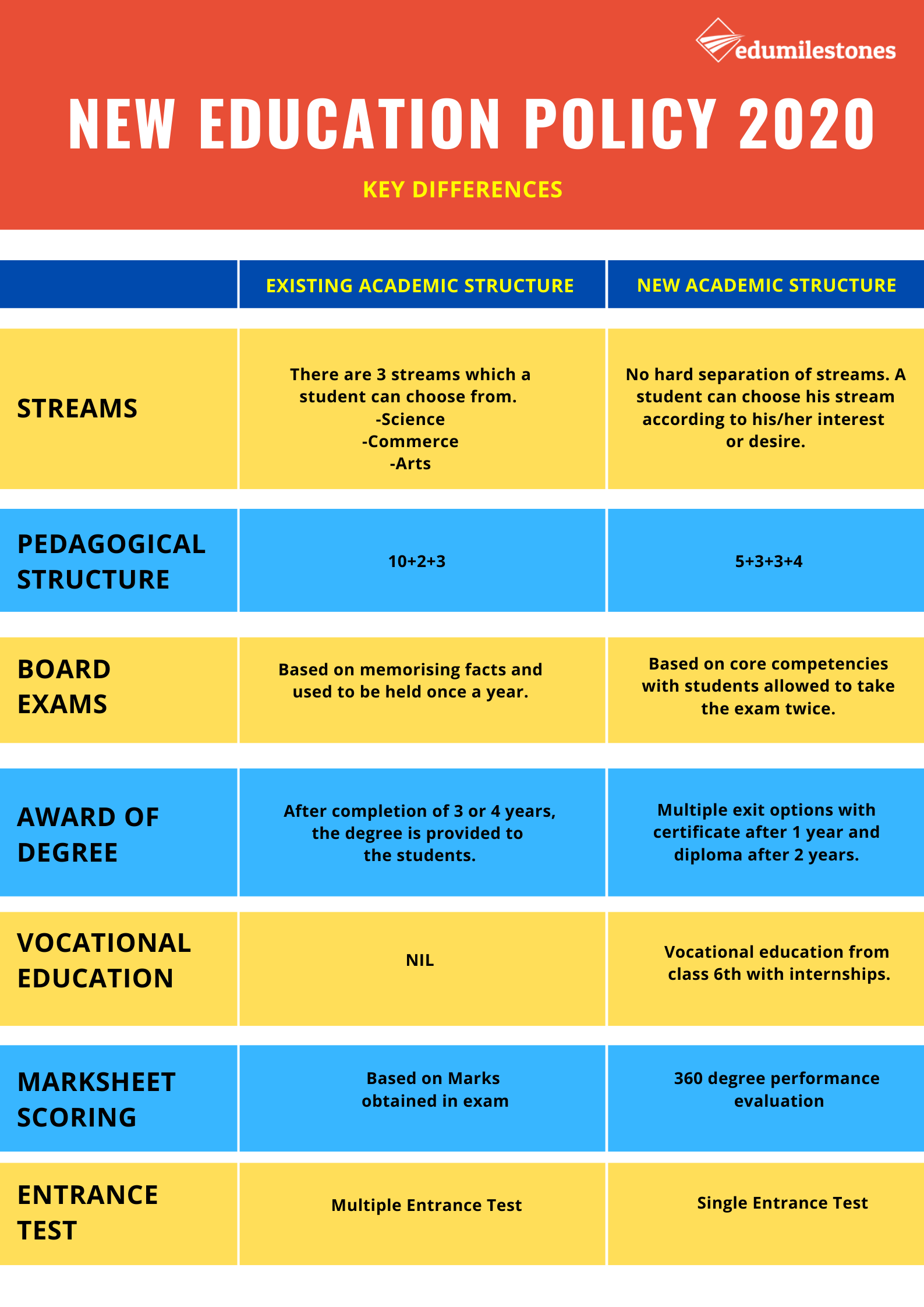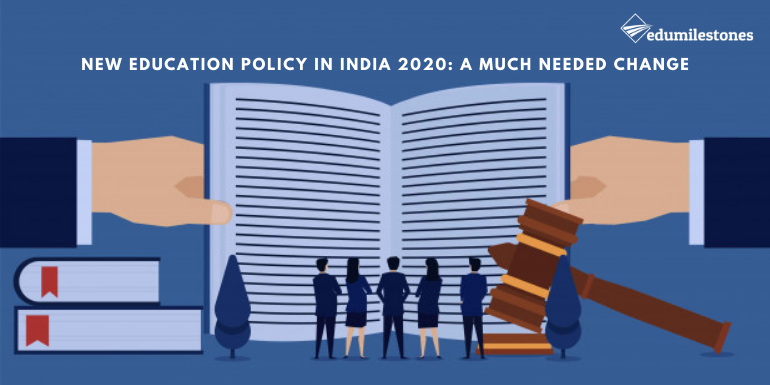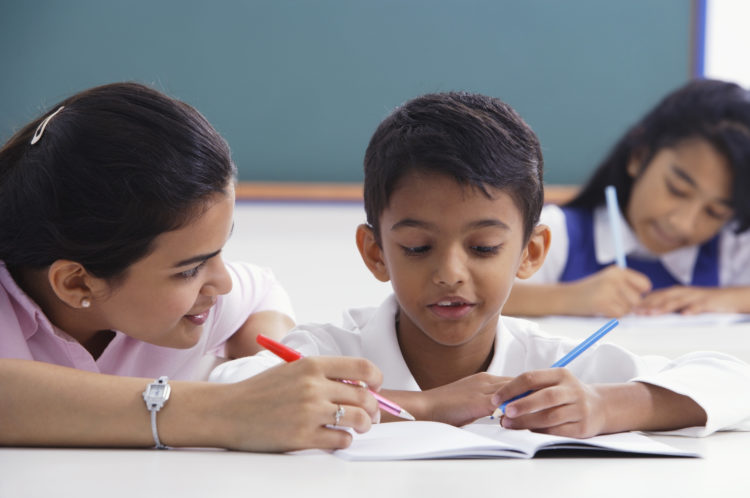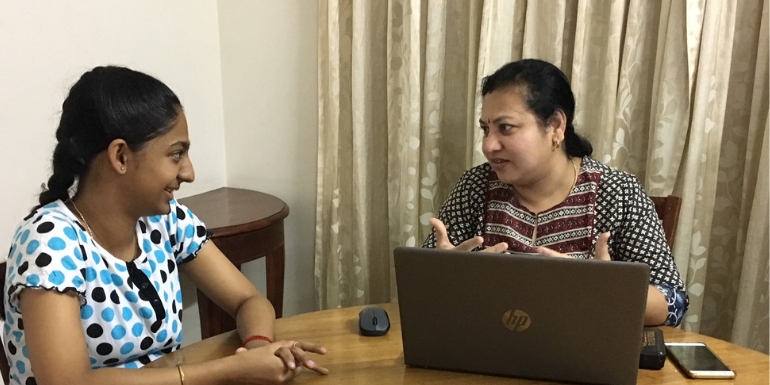A new era of the education system has started. It has been almost 3 decades since the education policy was introduced back in 1986 and updated in 1992.
Union Cabinet on Wednesday 29th July passed the National Education Policy 2020 which paved ways for sweeping changes in the Indian Education System.
It marks as the first education policy of the 21st century and replaces the 34-year National Policy on Education (NPE). This NEP is a fallout of the draft New Education Policy presented by a committee headed by Dr K KasturiRangan (former chairman ISRO).
The NEP main aim is to introduce major changes in the Indian education system from school to college level. Its purpose is to make India a global knowledge superpower by adopting an inclusive, participatory and holistic approach.
Let’s look at a few obvious scenarios what most of the students face or have faced.
The curriculum is outdated. What we are studying now, the ‘skills’ we are taught is not in line with the current market scenario. What is the point of my professional degree if my job is not aligned with my career interest?
Why do I need to study a compulsory subject which I don’t want that I am not interested in? Why is the syllabus so vast?
Why are all major educational opportunities based on a single exam that is conducted once a year?
Whether one is a parent or a student, I am sure that these questions must have come to fore.
Earlier there was no solution but now the latest policy is a progressive shift in the right direction.
Our education system is right now too exam-centric based on cramming the facts. Often the only criteria for promoting a student was solely decided on the marks he/she scored in the final exams. But we have had many instances where good students couldn’t do well “on that particular day” of the exam.
The students who used to do well in exams and get good marks were considered to be smart. The students who couldn’t mug the answers and do fair in exams were considered to be average.
So, basically marks were the epitome of success. What do we see here? A huge gap that needed to be addressed.
Education is the foundation of any nation and India needed a futuristic plan which plays an unprecedented role in the building of “New India”.
And now, enter NEP (New Education Policy) after 34 years of the last one.

1. The flexibility of choosing the subjects
There was a time when if you chose science stream, then you would be only studying the subjects related to that particular stream. There was no flexibility. There is too much insularity in the education system.
But now with the implementation of NEP, the student can choose to study commerce and political science at the same time. With Chemistry the student can study history as well.
The student doesn’t have to be constrained to one particular stream.
2. New pedagogical and curricular structure
The 10+2 academic structure is changed to 5+3+3+4 system corresponding to ages 3-8, 8-11, 11-14, 14-18 respectively.
The new education policy will encompass 4 stages:
- Foundation Stage - It will be of 5 years from age 3-8 years . It will include grade 1st -2nd
- Preparatory Stage - It will be of 3 Years from age 8- 11 years. It will include grade 3rd- 5th
- Middle Stage - It will be of 3 years from age 11-14 years. It will include grade 6th-8th
- Secondary Stage- it will be of 4 years from age 14- 18 years. It will include grade 9th -12th
In the 10+2, education used to start from the age of 6. And according to the new policy, it will start from the age of 3.
Foundational Stage
Foundation stage thats start from age group 3-8 divided into 2 parts:
- Age 3-6 in ECCE (Early childhood care and education).
- -Age 6-8, Grade 1-2 in primary school.
Preparatory Stage
Preperatory stage under new education policy in India starts from grade 3-5th. It will cover the age group of age 8-11. Main focus on play, discovery and activity-based and interactive classroom learning. Prior to the age of 5, every child will move to a preparatory class or Balvatika.
Middle Stage
Mindle stage start from grade 6-8th. It will cover the age group of age 11- 14. Primary focus on experiential learning in the science, maths, arts, social sciences and humanities’.
Secondary Stage
Secondary stage will cover education from grade 9th to 12th in 2 phases. First phase will be from 9th 12th and second will be from 11th to 12th.
It will cover the age group of 14-18 years age students.
- Focus on the multi-disciplinary study, greater critical thinking, flexibility and student choice of subject.
- Board exams to be conducted for the holistic development of the students.
Other highlights of education policy 2020
- School exams to be held only for 3 levels – Class 3, 5 & 8. This encourages students for higher-order thinking skills, conceptual clarity and critical thinking.
- There may be a situation where the student is unable to take up the exam due to health problems or any other personal issue. This facility will help in clearing the examination without losing a year.
- All students will be allowed to take 2 board exams (one main examination and one for improvement if desired) during the given year.
- For higher education, the national testing agency is to conduct entrance examination twice a year from 2022.
- The bachelors’ degree will be 4 years with exit options:
- After 1 year: certificate
- After 2 years: diploma
- The students who drop out after 2 years will have the option to complete the degree after the break. M.phil degree is to be dropped.
6. NPE extends right to education from 3 years to 18 years.
3. Introduction to Vocational education from 6th class
In most of the developed countries, vocation education is given a lot of importance. The jobs like plumbing, electrician, carpenter are viewed at the same level as the rest of the skilled jobs.
In India, these jobs are considered to be low-level jobs.
The new policy has implemented some structural changes which will change the mindset of many people by looking at the prospects of vocational courses. It also envisions universalization of early childhood education from ages 3 to 6.
Extracurricular activities - Along with the major subject’s, music, games, arts, and literature will also be given importance even during higher education.
4. Medium of Instruction
The medium of instruction will be the home language/mother-tongue/ local language/ regional language until at least grade 5, but preferably till grade 8th and beyond.
For students with hearing impairment, the Indian sign language will be standardized across the country and national and state curriculum materials will be developed accordingly.
5. One Regulator in India
With old education policy students have to go through multiple entrance exams to get into their favourites college. With the latest NEP, students will have to write one single entrance exam that will be optional, which will be conducted by the National Testing Agency.
6. Credits system launched
Dropout is the term which is very prevalent and popular now. Famous personalities like Bill Gates, Mark Zuckerberg, Steve Jobs were all dropouts.
Being dropout doesn’t affect you that much unless you are successful. But if you are a dropout and don’t get success in life, then there is a huge problem.
One major change that is implemented in the NEP 2020 for higher education is no bar to entry and exit system. Where the students with help of their academic performance and credits can easily continue their education even after a period of the gap.
Under the new policy of NPE, you can keep your credits if you are dropout and finish your degree later. All big regulators like UGC, AICTE & NCTE will come under one regulator.
7. Easier exams, no cramming
Class 10th and 12th board exams are probably the most stressful times in a student lives. The marks you get is directly proportional to the colleges you enter. It has been seen that many students get stressed about this phase of their lives and if they don’t get into a top college, all time and energy feel wasted.
Under NEP, the board exams will be made easier to test the core competency of the student rather than memorized facts. Further, students will be allowed to take the exam twice. There will be separate exams for objective and descriptive type questions.
8. Digital Education Drive
Integration of digital technology is envisaged at all levels of learning through a dedicated unit for creating digital infrastructure, digital content and capacity building. The main idea is to improve classroom processes through technological advancement so that no child is left behind.
Needless to add, we have seen a surge in the utility of online education learning in the recent pandemic. This policy aims at achieving the objective of uninterrupted education to all section of society.
One of the most talked-about advancements in education from last year was installations of digital boards for education. Now, not only a few but all schools will have the facility to provide digital education to students.
9. Enrolment Ratio
The theme of the policy is inclusion and providing universal literacy and numeracy by 2025.
The policy emphasizes universal access to schools and it aims at bringing drop-out school children back to school. It also intends to achieve 100% Gross Enrollment Ratio in school education by 2030 as well as to double the Gross Enrollment Ratio in higher education including vocational education.
10. Gender Inclusion Fund
Lack of proper education to girls has always been one of the major concerns. To mitigate the same, the policy envisages equitable quality education to all girls and transgender students.
11. Importance to practical knowledge
One main change that will surely benefit students in future is developing their skills at the very first stage of education. Now, schools and colleges will focus more on developing the child’s skills. With this norm in new education policy, now not grades but the skills will matter.
How will schools evaluate the students?
According to the new policy, a self-assessment will be done by the student. It will be followed by teacher assessment. The New Education Policy (NEP) seeks to equip students passing to have the core competency and at least one core skill.
Will there be any major changes in the board examination pattern?
As per the New Education Policy, board exams will continue but the exam paper will have more number of objective type questions. The student can appear in the board exam twice.
The main aim is to provide holistic development of the student rather than cramming and writing the exams.
What are the changes made under the Undergraduate (UG) courses?
The options given are certificate after 1 year, diploma after 2years, bachelors’ degree after 3 years and Bachelors’ with research after 4 years.
What is the minimum qualification required by a teacher under the New Education Policy (NEP)?
The minimum qualification for teaching will be a 4-year integrated Bed degree. A new and comprehensive national curriculum for teacher education will be formulated in consultation with NCERT.
Many years passed and the education system still remained the same for these long years, but it is high time when the system had to change their policies rules and regulations for a better tomorrow. Because education stands as one of the pillars for an educated society, country or state. And, with the current situation where the education system has a lot to offer from multiple courses to bountiful study streams, implementation to the existing system was required.
Everyone is still confused about the new education policy to be it students or parent’s things seem to be blurry, but with proper counselling, session parents can help their children’s to get into a better foundation stage where growth will be the only factor. So, deciding your child’s career path at the very beginning with the help of a career counsellor is important.
The new education policy has multiple advantages and benefits to offer, which can be best explained with a proper career counselling session. And, these changes do not talk about local benefits but are extended with global benefits by allowing setting up of foreign schools and colleges. So don’t let the changes affect your child’s bright future consult a career counsellor today for a better tomorrow.













